 The death of Philip Seymour Hoffman and his problems with substance abuse are a reminder that such struggles are not unusual in the movie business. Here are some other stars who have struggled with similar issues ...
The death of Philip Seymour Hoffman and his problems with substance abuse are a reminder that such struggles are not unusual in the movie business. Here are some other stars who have struggled with similar issues ...  "Desperate Housewives" actor Shawn Pyfrom wrote about his own struggle with drugs following Hoffman's death. The young actor says in an online letter that he "wasted the time of valuable people, who worked so hard to pull my career to a higher place, by allowing my addictions to tug me out of their grip."
"Desperate Housewives" actor Shawn Pyfrom wrote about his own struggle with drugs following Hoffman's death. The young actor says in an online letter that he "wasted the time of valuable people, who worked so hard to pull my career to a higher place, by allowing my addictions to tug me out of their grip."  Justin Bieber was booked into a Miami jail after failing a sobriety test early Thursday, January 23. According to Miami Beach Police Chief Raymond Martinez, during his arrest, Bieber "made some statements that he had consumed some alcohol, and that he had been smoking marijuana and consumed some prescription medication," before getting behind the wheel of a yellow Lamborghini.
Justin Bieber was booked into a Miami jail after failing a sobriety test early Thursday, January 23. According to Miami Beach Police Chief Raymond Martinez, during his arrest, Bieber "made some statements that he had consumed some alcohol, and that he had been smoking marijuana and consumed some prescription medication," before getting behind the wheel of a yellow Lamborghini. 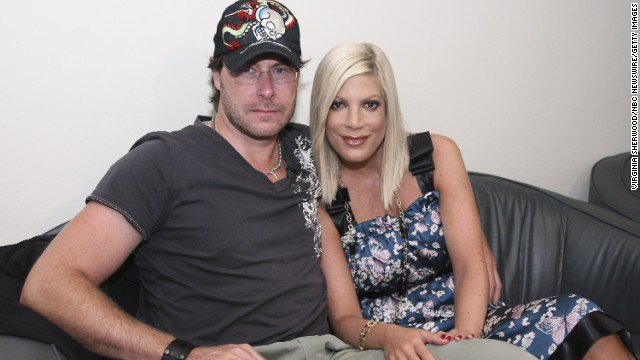 Actor and former reality show star Dean McDermott says he has entered rehab. The announcement came after an Us Weekly story in December 2012 alleged that McDermott had cheated on Tori Spelling, his wife of seven years. CNN has not independently confirmed the report.
Actor and former reality show star Dean McDermott says he has entered rehab. The announcement came after an Us Weekly story in December 2012 alleged that McDermott had cheated on Tori Spelling, his wife of seven years. CNN has not independently confirmed the report.  Country singer Trace Adkins suffered "a setback in his battle with alcoholism" and has entered a rehab facility for help, his representative told CNN on January 16.
Country singer Trace Adkins suffered "a setback in his battle with alcoholism" and has entered a rehab facility for help, his representative told CNN on January 16.  In a December interview with "Access Hollywood," Demi Lovato went into detail about her dependence on drugs and alcohol. There was a time when Lovato "couldn't go 30 minutes to an hour without cocaine, and I would bring it on airplanes," she said. "I would smuggle it, basically, and just wait until everyone in first class would go to sleep, and I would do it right there." According to Lovato, her rock bottom came at 19, when she filled a soda bottle with vodka to drink at 9 a.m. "I had a moment where I was like, 'Oh, my God ... that is alcoholic behavior," she said.
In a December interview with "Access Hollywood," Demi Lovato went into detail about her dependence on drugs and alcohol. There was a time when Lovato "couldn't go 30 minutes to an hour without cocaine, and I would bring it on airplanes," she said. "I would smuggle it, basically, and just wait until everyone in first class would go to sleep, and I would do it right there." According to Lovato, her rock bottom came at 19, when she filled a soda bottle with vodka to drink at 9 a.m. "I had a moment where I was like, 'Oh, my God ... that is alcoholic behavior," she said.  Lady Gaga revealed on the Elvis Duran radio show in November 2013 that she's been quietly dealing with an addiction to marijuana. "I had to stop (smoking pot)," the Mother Monster said. "I was addicted to it. ... Although I think it's the best drug to choose from when you're playing around and experimenting, I just want young kids to know that you actually can become addicted to it, and it's ultimately ... a form of self-medication. I was smoking 15 to 20 marijuana cigarettes a day with no tobacco."
Lady Gaga revealed on the Elvis Duran radio show in November 2013 that she's been quietly dealing with an addiction to marijuana. "I had to stop (smoking pot)," the Mother Monster said. "I was addicted to it. ... Although I think it's the best drug to choose from when you're playing around and experimenting, I just want young kids to know that you actually can become addicted to it, and it's ultimately ... a form of self-medication. I was smoking 15 to 20 marijuana cigarettes a day with no tobacco."  Elizabeth Vargas admitted having a problem with alcohol and entered a treatment program.
Elizabeth Vargas admitted having a problem with alcohol and entered a treatment program.  Jada Pinkett-Smith reflected on her Facebook page in September 2013 that addictions plagued her in her younger years. "I had many addictions, of several kinds, to deal with my life issues," she said.
Jada Pinkett-Smith reflected on her Facebook page in September 2013 that addictions plagued her in her younger years. "I had many addictions, of several kinds, to deal with my life issues," she said.  Zac Efron quietly completed a rehab program in 2013 without the media being any wiser. When he reappeared on the red carpet for the movie "Parkland" at the Toronto International Film Festival, sources close to the actor told E! News and People magazine that he was feeling healthy and better than ever.
Zac Efron quietly completed a rehab program in 2013 without the media being any wiser. When he reappeared on the red carpet for the movie "Parkland" at the Toronto International Film Festival, sources close to the actor told E! News and People magazine that he was feeling healthy and better than ever.  Country star Tim McGraw said in an interview in 2013 that he replaced drinking whiskey with working out to clean his life up.
Country star Tim McGraw said in an interview in 2013 that he replaced drinking whiskey with working out to clean his life up.  "Glee" star Cory Monteith was found dead at a hotel in Vancouver on July 13, 2013. Officials gave the cause as "mixed drug toxicity, involving intravenous heroin use combined with the ingestion of alcohol." Monteith had been public about his struggle with addiction and checked into a rehab facility in late March. He told Parade magazine that he started using drugs at 13 and had entered rehab by 19.
"Glee" star Cory Monteith was found dead at a hotel in Vancouver on July 13, 2013. Officials gave the cause as "mixed drug toxicity, involving intravenous heroin use combined with the ingestion of alcohol." Monteith had been public about his struggle with addiction and checked into a rehab facility in late March. He told Parade magazine that he started using drugs at 13 and had entered rehab by 19. 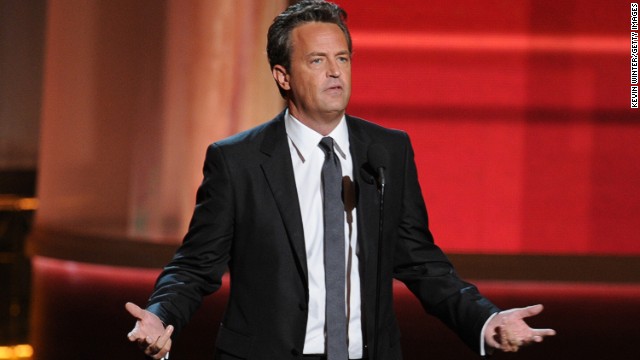 Matthew Perry has struggled with an addiction to prescription drugs and alcohol and landed on the cover of People magazine to discuss his road to sobriety. While he was on "Friends," he said, "it would seem like I had it all. It was actually a very lonely time for me, because I was suffering from alcoholism."
Matthew Perry has struggled with an addiction to prescription drugs and alcohol and landed on the cover of People magazine to discuss his road to sobriety. While he was on "Friends," he said, "it would seem like I had it all. It was actually a very lonely time for me, because I was suffering from alcoholism."  "Sex and the City" actress Kristin Davis told Health magazine in 2008 that unlike her cocktail-loving character Charlotte York, she is a recovering alcoholic. The 48-year-old admitted that she was drinking so much, she didn't think she'd live past 30.
"Sex and the City" actress Kristin Davis told Health magazine in 2008 that unlike her cocktail-loving character Charlotte York, she is a recovering alcoholic. The 48-year-old admitted that she was drinking so much, she didn't think she'd live past 30.  Ben Affleck surprised friends when he checked into rehab for alcohol abuse in 2001, People magazine reported.
Ben Affleck surprised friends when he checked into rehab for alcohol abuse in 2001, People magazine reported.  Jamie Lee Curtis has reportedly said she was once so addicted to prescription pain medicine that she stole some from a relative to help feed the addiction.
Jamie Lee Curtis has reportedly said she was once so addicted to prescription pain medicine that she stole some from a relative to help feed the addiction.  Jodie Sweetin, who played innocent Stephanie Tanner on "Full House," documented her drug problems in her memoir "unSweetined." A low point, she said, was using cocaine, meth and ecstasy while on tour to discuss her sobriety.
Jodie Sweetin, who played innocent Stephanie Tanner on "Full House," documented her drug problems in her memoir "unSweetined." A low point, she said, was using cocaine, meth and ecstasy while on tour to discuss her sobriety.  There have been questions as to whether Bob Dylan was telling the truth when he reportedly told a journalist in 1966 that he had kicked a $25-a-day heroin habit, but, according to Rolling Stone, he had a period during his 1966 tour where he used "huge amounts" of amphetamines.
There have been questions as to whether Bob Dylan was telling the truth when he reportedly told a journalist in 1966 that he had kicked a $25-a-day heroin habit, but, according to Rolling Stone, he had a period during his 1966 tour where he used "huge amounts" of amphetamines.  In 2012, Black Eyed Peas singer Fergie told Oprah that her drug use proceeded from ecstasy to crystal meth. She became so paranoid she thought the FBI and SWAT teams were following her before she sought treatment.
In 2012, Black Eyed Peas singer Fergie told Oprah that her drug use proceeded from ecstasy to crystal meth. She became so paranoid she thought the FBI and SWAT teams were following her before she sought treatment.  She was known for her wholesome role as Laura Ingalls on the television series "Little House on the Prairie," but at her worst Melissa Gilbert was covering up feelings of sadness by drinking up to more than two bottles of wine a night, the actress told More magazine.
She was known for her wholesome role as Laura Ingalls on the television series "Little House on the Prairie," but at her worst Melissa Gilbert was covering up feelings of sadness by drinking up to more than two bottles of wine a night, the actress told More magazine.  "Harry Potter" star Daniel Radcliffe told GQ magazine that he had his last drink in 2010. "There were a few years there when I was just so enamored with the idea of living some sort of famous person's lifestyle that really isn't suited to me."
"Harry Potter" star Daniel Radcliffe told GQ magazine that he had his last drink in 2010. "There were a few years there when I was just so enamored with the idea of living some sort of famous person's lifestyle that really isn't suited to me."  A year before People magazine reported that the actress checked into a substance abuse facility in 2008, Eva Mendes told reporters she "wasn't comfortable at all" and needed a cocktail to film a sex scene in 2007's "We Own the Night."
A year before People magazine reported that the actress checked into a substance abuse facility in 2008, Eva Mendes told reporters she "wasn't comfortable at all" and needed a cocktail to film a sex scene in 2007's "We Own the Night."  Kristen Johnston talked about her addiction to drugs and alcohol in her 2012 memoir "Guts" and admitted she was depressed during her time on "3rd Rock From the Sun." "And you're not supposed to be," she said. "You can't tell anybody, 'I'm so bummed you gave me an Emmy.' You can't be sad when you're being celebrated. So it was a big conflict and there's no shrink that can understand it."
Kristen Johnston talked about her addiction to drugs and alcohol in her 2012 memoir "Guts" and admitted she was depressed during her time on "3rd Rock From the Sun." "And you're not supposed to be," she said. "You can't tell anybody, 'I'm so bummed you gave me an Emmy.' You can't be sad when you're being celebrated. So it was a big conflict and there's no shrink that can understand it." 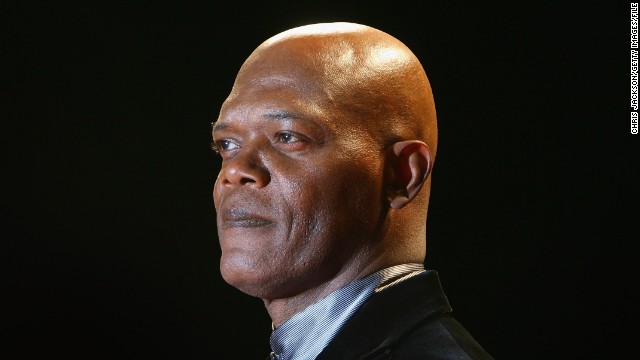 Samuel L. Jackson was reportedly able to portray crack addict Gator in "Jungle Fever" so authentically because of his own struggles with drugs and alcohol. He landed the breakout role two weeks after leaving rehab.
Samuel L. Jackson was reportedly able to portray crack addict Gator in "Jungle Fever" so authentically because of his own struggles with drugs and alcohol. He landed the breakout role two weeks after leaving rehab.  Actress Kelly Preston, right, has said she gave up drugs and alcohol to be a better mother to her kids and better wife to John Travolta. "I don't drink anymore. I don't smoke anymore. I don't do drugs anymore. All of those come with an 'anymore.' I used to do everything and a lot of everything," she said.
Actress Kelly Preston, right, has said she gave up drugs and alcohol to be a better mother to her kids and better wife to John Travolta. "I don't drink anymore. I don't smoke anymore. I don't do drugs anymore. All of those come with an 'anymore.' I used to do everything and a lot of everything," she said.  Jane Lynch wrote about her addictions to alcohol and cough syrup in her memoir "Happy Accidents." She told Access Hollywood in 2013 that she has been sober for 21 years.
Jane Lynch wrote about her addictions to alcohol and cough syrup in her memoir "Happy Accidents." She told Access Hollywood in 2013 that she has been sober for 21 years.  Sir Elton John told USA Today that he swore off drugs and alcohol in 1990. He said, "If I ever find myself in a situation where there are drugs, I can smell the cocaine. I can feel it in the back of my throat, that horrible feeling of taking the first hit of cocaine. And I leave."
Sir Elton John told USA Today that he swore off drugs and alcohol in 1990. He said, "If I ever find myself in a situation where there are drugs, I can smell the cocaine. I can feel it in the back of my throat, that horrible feeling of taking the first hit of cocaine. And I leave." 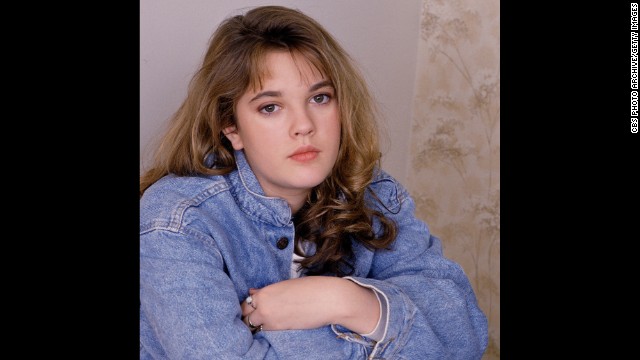 For those who may not remember because she has so completely turned herself around, Drew Barrymore entered rehab at the tender age of 13. Most fans were unaware that the then beloved child star partied so hard. She chronicled her early struggles in her memoir "Little Girl Lost."
For those who may not remember because she has so completely turned herself around, Drew Barrymore entered rehab at the tender age of 13. Most fans were unaware that the then beloved child star partied so hard. She chronicled her early struggles in her memoir "Little Girl Lost."  It was years after Meredith Baxter portrayed one of America's favorite moms, Elyse Keaton on "Family Ties," that she revealed that she is a recovering alcoholic.
It was years after Meredith Baxter portrayed one of America's favorite moms, Elyse Keaton on "Family Ties," that she revealed that she is a recovering alcoholic. 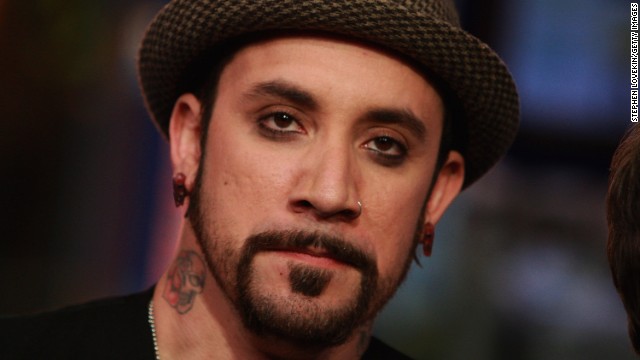 Backstreet Boys member A.J. McLean last checked into rehab in 2011. He had previously been treated for depression, anxiety and excessive alcohol consumption.
Backstreet Boys member A.J. McLean last checked into rehab in 2011. He had previously been treated for depression, anxiety and excessive alcohol consumption. 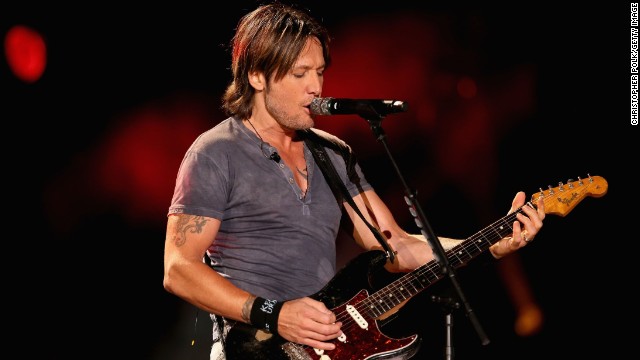 Country star and "American Idol" judge Keith Urban told Oprah in 2010 that his wife Nicole Kidman and several close friends staged an intervention to help him overcome his addiction to cocaine and alcohol.
Country star and "American Idol" judge Keith Urban told Oprah in 2010 that his wife Nicole Kidman and several close friends staged an intervention to help him overcome his addiction to cocaine and alcohol.  In 2004, a then 19-year-old Kelly Osbourne reportedly entered rehab for an addiction to painkillers. "The amount of pills that was found in her bag was astounding," her father, Ozzy, said.
In 2004, a then 19-year-old Kelly Osbourne reportedly entered rehab for an addiction to painkillers. "The amount of pills that was found in her bag was astounding," her father, Ozzy, said.
- The investigation into the death of Philip Seymour Hoffman is raising questions
- Out of thousands of heroin death investigations each year, how many yield results
- "What makes his death more important than that of my 19-year-old son?" one mother asks
- One expert says the difference is people appear to be willing to cooperate in Hoffman's death
New York (CNN) -- Within hours of finding Philip Seymour Hoffman on the floor of his bathroom with a needle in his arm, New York Police Department investigators were combing his apartment and the surrounding neighborhood for clues.
Investigators looked through video from ATM cameras and interviewed people who saw the actor, piecing together the actor's final hours as they searched for anyone who might be linked to the drugs believed to have killed him over the weekend.
Three days later, authorities arrested four people in connection with the drugs found in Hoffman's apartment.
It was a lightning-paced investigation, raising the question that out of the thousands of heroin-related deaths in the United States each year, how many yield similar results?
 Two suspects released in Hoffman search
Two suspects released in Hoffman search 
 Philip Seymour Hoffman appears in 2013's "The Hunger Games: Catching Fire." Hoffman played the role of Plutarch, the head game maker in the film. He was expected to also appear in the following films of the very successful franchise. He was found dead in his Manhattan apartment Sunday of an apparent drug overdose. Click through for more highlights from his career:
Philip Seymour Hoffman appears in 2013's "The Hunger Games: Catching Fire." Hoffman played the role of Plutarch, the head game maker in the film. He was expected to also appear in the following films of the very successful franchise. He was found dead in his Manhattan apartment Sunday of an apparent drug overdose. Click through for more highlights from his career:  Hoffman appears in 2012's "A Late Quartet." He reportedly learned how to play the violin during his role as a member of a string quartet. He told the Huffington Post that "I really got into the violin thing, because it's not acting, and I got off on that."
Hoffman appears in 2012's "A Late Quartet." He reportedly learned how to play the violin during his role as a member of a string quartet. He told the Huffington Post that "I really got into the violin thing, because it's not acting, and I got off on that."  Hoffman appears with Joaquin Phoenix in "The Master" (2012). He received Oscar and Golden Globe nominations in the supporting actor category for his work in the film.
Hoffman appears with Joaquin Phoenix in "The Master" (2012). He received Oscar and Golden Globe nominations in the supporting actor category for his work in the film.  Hoffman plays manager Art Howe in the 2011 hit "Moneyball." The real Art Howe was reportedly not pleased with how he was portrayed in the film but told TMZ Sports he didn't blame Hoffman. "He was just playing the part he was given," Howe said.
Hoffman plays manager Art Howe in the 2011 hit "Moneyball." The real Art Howe was reportedly not pleased with how he was portrayed in the film but told TMZ Sports he didn't blame Hoffman. "He was just playing the part he was given," Howe said.  Hoffman plays a DJ known as The Count in 2009's "Pirate Radio."
Hoffman plays a DJ known as The Count in 2009's "Pirate Radio."  In 2008's "Doubt," Hoffman plays Father Brendan Flynn, a Catholic priest accused of having an inappropriate relationship with a male student. This was yet another film that got Hoffman supporting actor nominations for the Oscars and the Golden Globes.
In 2008's "Doubt," Hoffman plays Father Brendan Flynn, a Catholic priest accused of having an inappropriate relationship with a male student. This was yet another film that got Hoffman supporting actor nominations for the Oscars and the Golden Globes.  Hoffman plays Owen Davian in 2006's "Mission: Impossible III." The actor told AOL at the time that while an action film was not usually his type of role, "it was just one of those things where all the ingredients seemed right."
Hoffman plays Owen Davian in 2006's "Mission: Impossible III." The actor told AOL at the time that while an action film was not usually his type of role, "it was just one of those things where all the ingredients seemed right."  Hoffman plays the title role in 2005's "Capote." He won the Oscar for best actor in a leading role for his performance as Truman Capote, who wrote "In Cold Blood." Hoffman also won a Golden Globe for the role.
Hoffman plays the title role in 2005's "Capote." He won the Oscar for best actor in a leading role for his performance as Truman Capote, who wrote "In Cold Blood." Hoffman also won a Golden Globe for the role. 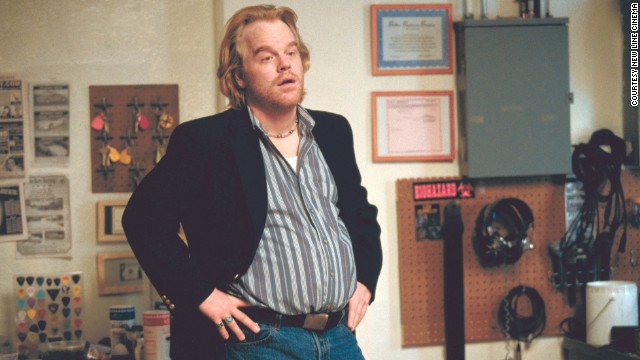 Hoffman plays a phone sex-line supervisor and mattress store owner in 2002's "Punch-Drunk Love."
Hoffman plays a phone sex-line supervisor and mattress store owner in 2002's "Punch-Drunk Love."  Hoffman plays Lester Bangs in 2000's "Almost Famous." He delivers one of the film's most memorable scenes when he advises Patrick Fugit's character, William Miller, that "the only true currency in this bankrupt world is what we share with someone else when we're uncool."
Hoffman plays Lester Bangs in 2000's "Almost Famous." He delivers one of the film's most memorable scenes when he advises Patrick Fugit's character, William Miller, that "the only true currency in this bankrupt world is what we share with someone else when we're uncool."  Hoffman appears with Rebecca Pidgeon in 2000's "State and Main." He plays a screenwriter suffering from writer's block.
Hoffman appears with Rebecca Pidgeon in 2000's "State and Main." He plays a screenwriter suffering from writer's block.  Jude Law and Hoffman share a scene in 1999's "The Talented Mr. Ripley." Hoffman was hailed as a scene stealer in the psychological thriller set in Italy.
Jude Law and Hoffman share a scene in 1999's "The Talented Mr. Ripley." Hoffman was hailed as a scene stealer in the psychological thriller set in Italy.  Hoffman in 1998's comedy-drama "Happiness."
Hoffman in 1998's comedy-drama "Happiness."  Hoffman plays Brandt, Mr. Lebowski's personal assistant, in the 1998 cult comedy hit "The Big Lebowski."
Hoffman plays Brandt, Mr. Lebowski's personal assistant, in the 1998 cult comedy hit "The Big Lebowski."  Hoffman played the slightly creepy production assistant Scotty in 1997's "Boogie Nights," with Mark Wahlberg and John C. Reilly.
Hoffman played the slightly creepy production assistant Scotty in 1997's "Boogie Nights," with Mark Wahlberg and John C. Reilly.  Hoffman plays George Willis Jr. in 1992's "Scent of a Woman." He is credited as Philip S. Hoffman in the movie.
Hoffman plays George Willis Jr. in 1992's "Scent of a Woman." He is credited as Philip S. Hoffman in the movie. Philip Seymour Hoffman: Master of film
Philip Seymour Hoffman: Master of film
Philip Seymour Hoffman: Master of film
Philip Seymour Hoffman: Master of film
Philip Seymour Hoffman: Master of film
Philip Seymour Hoffman: Master of film
Philip Seymour Hoffman: Master of film
Philip Seymour Hoffman: Master of film
Philip Seymour Hoffman: Master of film
Philip Seymour Hoffman: Master of film
Philip Seymour Hoffman: Master of film
Philip Seymour Hoffman: Master of film
Philip Seymour Hoffman: Master of film
Philip Seymour Hoffman: Master of film
Philip Seymour Hoffman: Master of film
Philip Seymour Hoffman: Master of film
 Philip Seymour Hoffman
Philip Seymour Hoffman "There are laws in most states now that say if you give drugs to somebody who kill themselves, you are responsible for their death," CNN legal analyst Mark O'Mara said.
But are all such investigations created equal? The answer depends on whom you ask, and where you ask.
'A victim is a victim'
The large law-enforcement response to Hoffman's death wasn't surprising to Mordecai Dzikansky, a retired NYPD homicide detective and intelligence officer with more than 25 years on the job.
"...That's part of the beast," he said. "Something happens in Midtown versus something happens in a corner of Staten Island, I don't think the detectives on the case feel any differently. A victim is a victim."
But add the actor's stature and the media attention, and it requires a few more "hands on deck," he said.
Everyone in law enforcement agrees there has been a spike in heroin use in the United States, spurred by a crackdown on abuse of prescription pills and an increase in heroin production in Mexico.
As a result, heroin-related deaths are on the rise. And so, too, are the investigations into the drug that serves as a cheap substitute for prescription drug abuse.
Quantifying the number of heroin-related investigations is difficult at best, given the sheer number of jurisdictions across the nation.
But Joseph Giancalone, a retired NYPD detective with more than 20 years of experience as an investigator, believes the police response in the Hoffman case was undoubtedly influenced by media attention surrounding an apparent overdose death of a celebrity.
The Manhattan district attorney's office declined to comment on the Hoffman case or discuss the number of heroin-related prosecutions it has carried out. The New York Police Department did not respond to repeated CNN requests to discuss the scope and pace of the Hoffman investigation compared to others in the city.
Spate of deaths
Giancalone said a spate of heroin-related deaths in the region also played a role in the police response.
In Allegheny County, a predominantly working class area of western Pennsylvania, the chief medical examiner says he typically sees three to four deaths a week from drug overdoses.
Rarely are they heroin deaths.
But in one week in late January, Dr. Karl Williams says he saw 15 -- all heroin users, all from an overdose of heroin laced with the powerful cancer painkiller fentanyl.
The drug did not discriminate. Among the dead: Men and women, young and old. None was a famous actor, though.
County and state law enforcement officials sounded the warning about the deadly drug, and Pittsburgh's mayor pleaded for people to come forward with information.
Within days, a 39-year-old Pittsburgh man was in custody charged with selling the heroin. Authorities seized more than 2,000 bags of the suspected heroin from the man's home, state Attorney General Kathleen G. Kane said at the time.
"It is my highest priority to find and hold accountable those involved in the distribution of this deadly drug mixture," she said.
Authorities in Maryland sounded a similar warning after 37 people died between September and January after using heroin laced with fentanyl.
And in New York City, authorities have reported a dramatic jump in heroin-related deaths. From 2010 to 2012, heroin-related deaths jumped 84%, from 3.1 to 5.7 per 100,000 people, according to a New York City Health Department report released in 2013. That amounts to 382 deaths in 2012, more than one per day.
"The more attention that these things get in the media, the more likelihood there's going to be a strong police response," said Giancalone, who teaches criminal investigation at John Jay College of Criminal Justice in Manhattan.
Celebrities vs. ordinary people
But the media doesn't pay close attention to an overdose death of an ordinary New Yorker, said Dzikansky, who spent years investigating drug overdoses.
"Most of the overdoses that I dealt with, I can't say all, but there was a significant amount where the person, in order to feed the habit, would burglarize apartments," he said.
"Here's an example of a person with a family who brought joy to many, many people and, unfortunately, his addiction killed him. Now there's more attention ... We have to get it [heroin] off the streets. Once it's off the streets, everybody benefits, even the burglar who does it to feed a habit benefits."
Hundreds of miles from New York City, Beth Vernau heard the news of Hoffman's death and the police investigation.
There has been no such law enforcement response looking into her son Andrew's heroin overdose last October, she says.
"What makes his death more important than that of my 19-year-old son?" Vernau, who lives outside Pittsburgh, asked of Hoffman's apparent drug overdose.
"(The police) get on it because it makes the news. But you have a 19-year-old who overdosed, and there could be an example made out there: We're going to go after these people. But no, because he's not a celebrity, that's the end of it."
'Families of ordinary kids struggle'
Andrew was hospitalized two days before dying from an addiction that started when he was 13, Vernau said. He started abusing alcohol and pot, then prescription drugs and, finally, heroin.
She said her son overdosed and the two people he was with put him in her car and drove him around for an hour and 45 minutes before taking him to a hospital. There was no prosecution, she said, no search for the dealer who sold him the heroin.
"Don't get me wrong, I feel bad for anybody who dies of an overdose. But the families of ordinary kids struggle just as much," she said.
Giancalone said some will unfairly criticize the rapid police response to the death of the celebrity.
"Family members of people who aren't famous will say, look at the police response because this guy was an actor, but that's not the case," he said. "The answer is that people were willing to cooperate and give out information to get this stuff. Usually family members are the last ones to know. And friends abandon them, too, because they're using heroin, too."
"It really comes down to the fact that in the very beginning of the investigation, they had people who were willing to help out the police. That rarely happens."
The day after Hoffman died the headlines in New York screamed: "Last Act" and "Death By The Needle."
There were no such headlines for Jose Juarez and Yvonne Valdez, both 18, who died last November of heroin overdoses blocks apart on the same day in Irving, Texas.
Authorities were looking into whether overdoses were related, according to CNN affiliate KNBC in Dallas.
How did it happen?
Celebrity deaths attract attention and, ultimately, questions: How did this happen? Why did it happen?
Those are the questions authorities are trying to answer about Hoffman.
Giancalone is hopeful some good might come out of the investigation.
"Maybe this death of this actor won't be in vain. Maybe they'll be a huge response with arrests of people putting heroin on the streets," he said.
And just maybe all this attention on Hoffman's death will save a few lives, Aaron Sorkin, the creator of HBO's "The Newsroom," wrote in Time magazine.
The two men first met on the set of the 2007 film "Charlie Wilson's War," and during a break in filming the two men shared their stories of heroin addiction with one another.
"If one of us dies of an overdose, probably 10 people who were about to won't," Hoffman told him, Sorkin wrote in Time magazine.
"He meant that our deaths would make news and maybe scare someone clean."
CNN's Ray Sanchez reported this story from New York; Chelsea J. Carter reported and wrote from Atlanta.
No comments:
Post a Comment